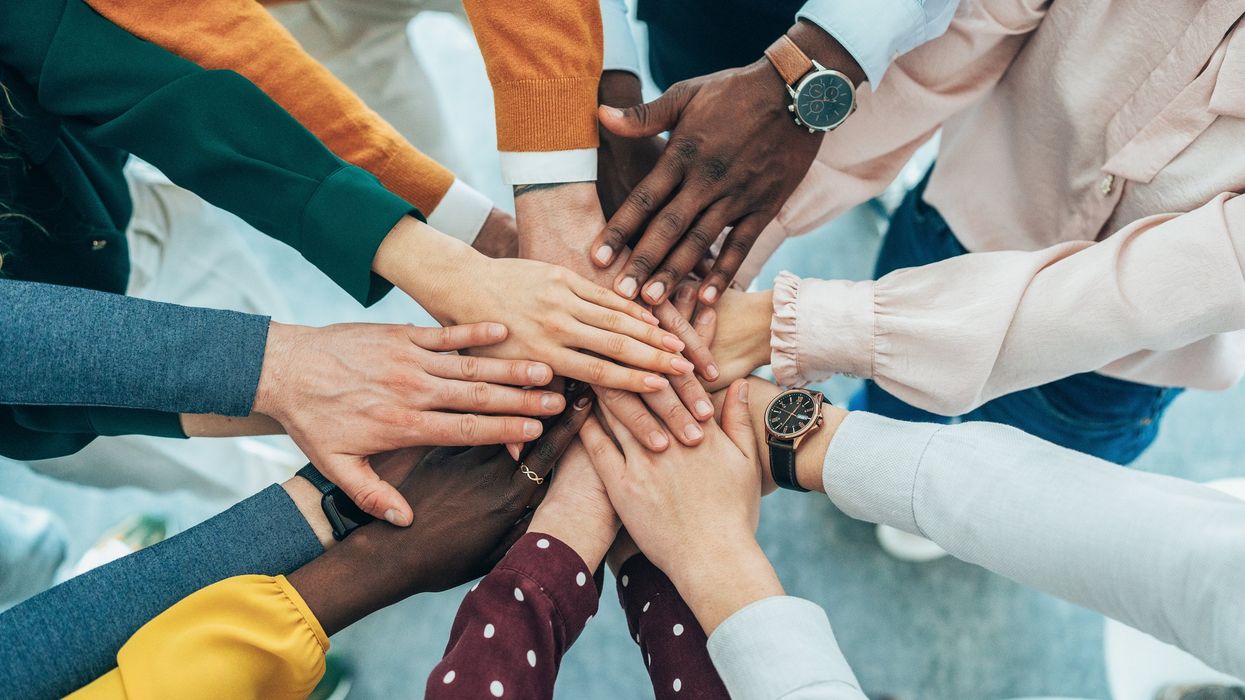If we were deeply divided during the last presidential election, I find we’re all in the same boat now. As I travel the country, people tell me they’re disoriented by the uncertainty, chaos, and confusion in society. I hear this from Democrats, Republicans, Independents, and others alike.
What’s clear is that we have lost a basic sense of decency in our interactions. Empathy and compassion are missing from one another. Yet, there remains a hunger among people for belonging and connection—for community.
I believe we now face an urgent choice—as individuals, as communities, and as a country. Amid our differences and uncertainties, we can hunker down and bury our heads in the sand. We can wallow in despair. We can resist what is happening around us as if that alone is enough.
Or we can choose another path.
I recently convened a national virtual event with scores of leaders from every corner of the country called “What to do when you don’t know what to do.” As people joined the event, I asked them to tell me in a word how they were feeling about where the country and their lives are. Their responses came fast: frustrated, apprehensive, concerned, worried, anxious. Perhaps you feel this way too.
During the event, I related my recent visit to Selma, AL, where I joined some 40,000 people to commemorate the 60th anniversary of Bloody Sunday. While I marched with others over the Edmund Pettus Bridge, I couldn’t help but wonder if we are ready to not just commemorate the past but to march back over that bridge together to commence our future. Not just in Selma, but in the nation.
There’s an old social justice song whose refrain includes the line, “Are you open? Are you willing?” I love those words. They make an entreaty to each of us to step forward, engage, and articulate what we are for.
I believe the answer to those questions—indeed, the choice before us—hinges on hope. For so many of us, hope feels absent, maybe diminished, even extinguished today. We are bombarded daily by dizzying executive orders, political debates, and the demonization of one side or another. All these contribute to a widespread lack of hope. But this is not a moment to surrender or give up. Instead, we must reground ourselves in where we can find hope.
I believe we can find it in those places closest to us—in our local communities and in our lives. It is in these places where progress is being made. Where we are bound to be more decent, compassionate, and empathetic toward one another. Where our belief in one another is often expressed in real ways. The trick is that we must each actively look for it. It’s there.
But when you find hope, don’t stop there. For we must each become agents of hope —choosing to lift up and make visible for others the hope that you find. Particularly in our current environment, we need more people to see themselves as agents of hope—finders and spreaders of hope in their communities. When we embrace this mission, we activate more people who will engage in helping us build more decency and community in our lives. We will not be so isolated and alone.
Just before I held that virtual event, I was in Reading, PA, engaging a group of leaders I’ve been working with these past few years to make progress on education issues. I opened the session similarly to how I began the virtual event. The same glum responses came. But as we talked about the work they’ve been producing over the past few years—which is truly creating some of the most transformational change I’ve ever witnessed—their demeanor shifted. At the end, I asked them again how they were feeling.
This time, people told me “hopeful.” Why? They said the actions they have been producing—stronger relationships, deeper trust, and new ways of working together—gave them hope. The hope they longed for was right in the room, with the people sitting right next to them, in the actions they were creating together.
Just like the people in Reading are demonstrating, hope is something close to us—that we can find, create, carry with us, and spread to others. But we must be willing to see it. We must become agents for it.
Are you open? Are you willing?
.




















Trump & Hegseth gave Mark Kelly a huge 2028 gift